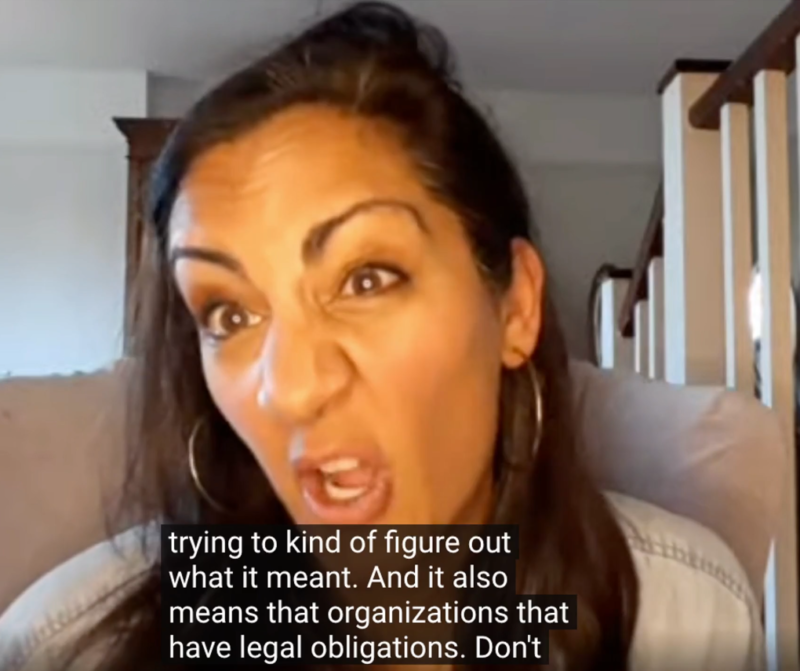[References to ‘The Guardian’ should also be taken to include its sister paper ‘The Observer’]
In mid-April, a group of senior writers and editors at The Guardian met as part of the company’s ‘Diversity and Inclusion Week’ to discuss pushing gender-critical narratives ‘fearlessly,’ with the paper’s anti-trans slant clearly not enough for them.
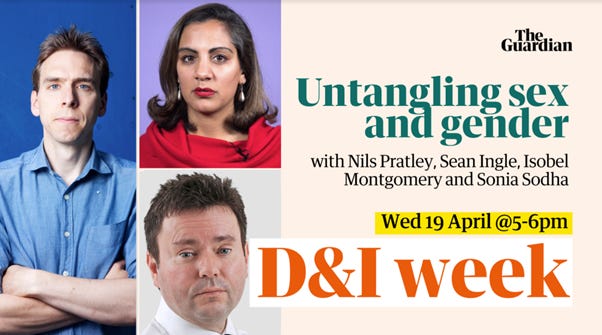
The meeting of four senior members of The Guardian’s staff (leader writer Susanna Rustin, financial editor Nils Pratley, chief sports writer Sean Ingle, and chief leader writer Sonia Sodha, Montgomery as mentioned above in the image did not appear) was watched by approximately 120 others from the company, including Guardian US, Guardian Australia, and The Observer.
Taking place on the same day as their Pride event, I was told that ‘Untangling sex and gender’ was the most well-attended event of the week.
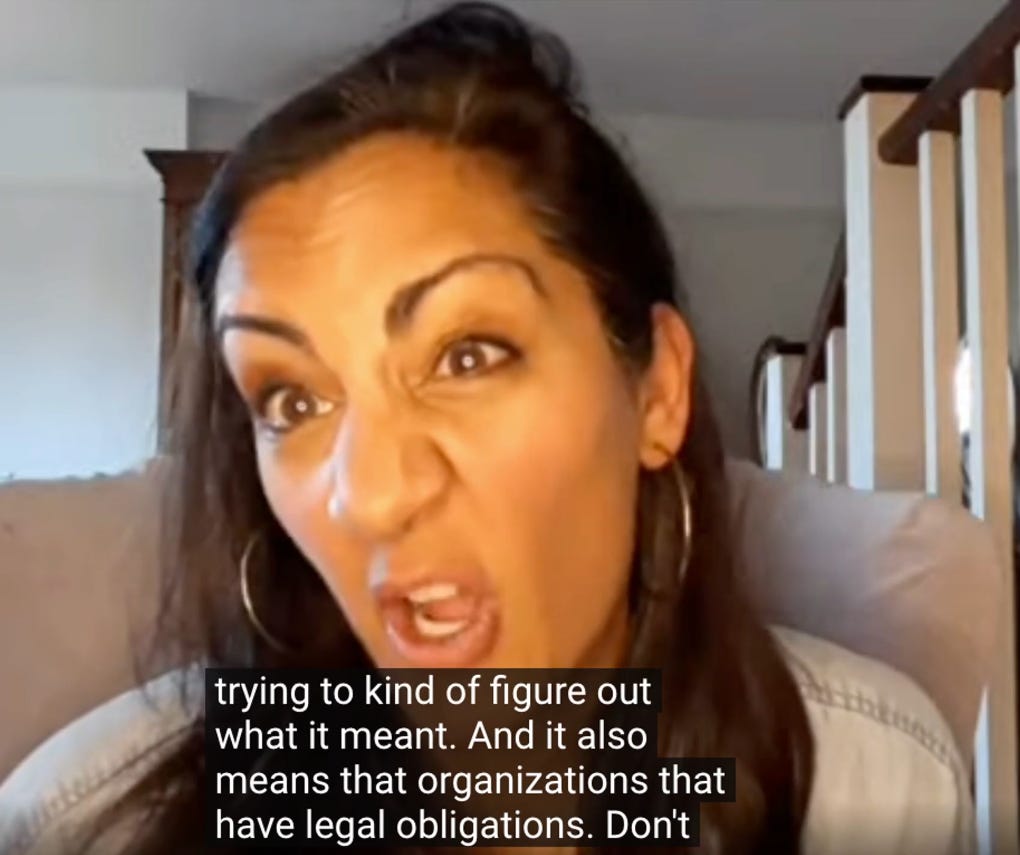
The online gathering of the newly formed ‘Sex Equality Group’, which lasted an hour, and which I have seen in full, featured no trans people. During the Q&A session towards the end, the first question asked if the panel should have included a trans or non-binary journalist. It failed to mention that no trans or non-binary journalist will work for The Guardian due to the transphobia in its offices and pages.
Pratley read the question and provided the answer, taking no input from others, saying, “I think the answer to that is this is not BBC Question Time and this event is not the Dialogue Project. I don’t think anyone should be greatly surprised that the first event from the Sex Equality Group comprises members of the Sex Equality Group.”
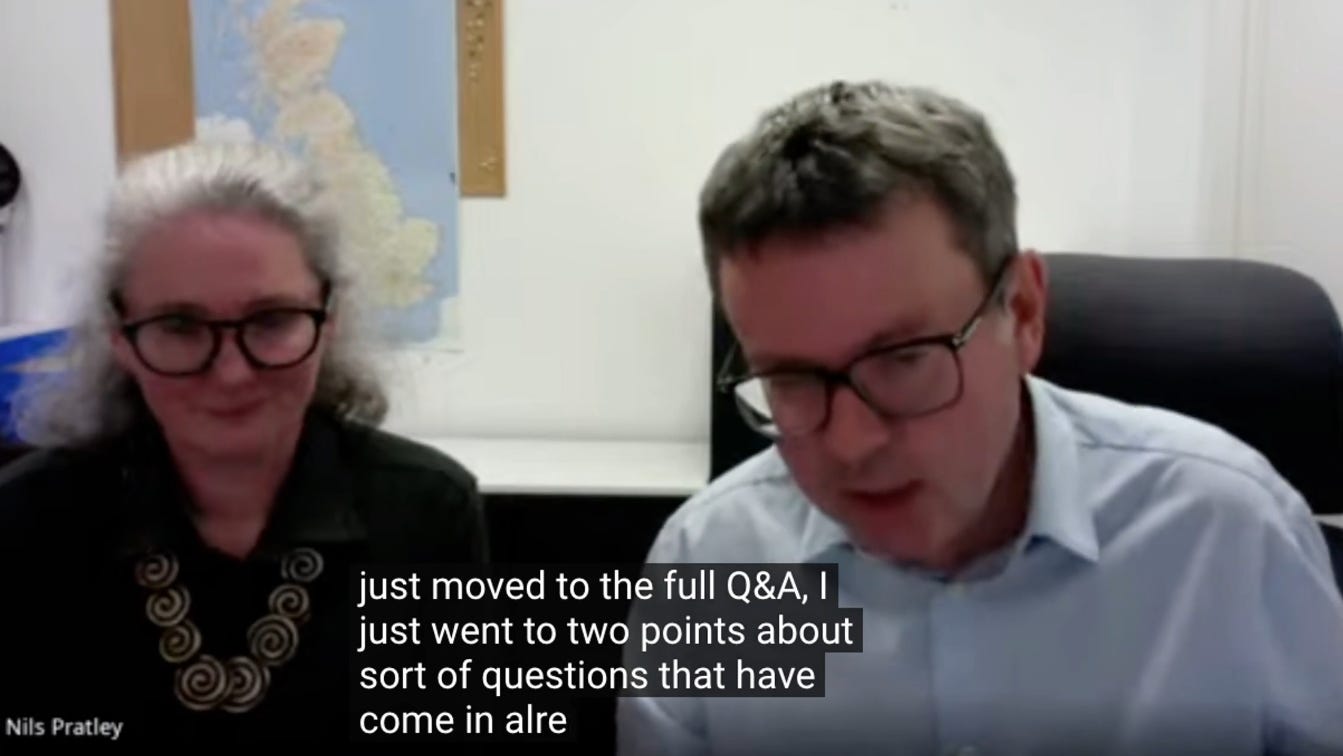
In all, it was 60 minutes of gender crits greatest hits – Lia Thomas, Emily Bridges, men are violent therefore we must segregate trans people etc., all while assuring whoever might see a video of the meeting that they, of course, respect trans people. Just not enough to do any sort of research into the nonsense they were repeating as evidence as to why they are right to be concerned with trans people.
In fact, Rustin referenced some of her research material early in the meeting. “In thinking about how to approach today, I re-read parts of Kathleen Stock’s Material Girls and talked to her in person,” Rustin said.
“I rummaged through Caroline Criado Perez’s Invisible Woman while remembering her talk at a FiLia conference I attended. And I recalled Emma Hilton’s hilarious biology lesson at a meeting on the fringes of the 2021 Labour Party conference, where the question, what is a woman? dogged MPs”
So, nothing by trans people, then? Just transphobes. Cool.
Ingle, The Guardian’s chief sports writer, displayed his biological essentialism, using the ability of cavemen to throw a spear as a reason trans women should be banned from sports.

“Most of that advantage for male puberty is retained. They also point out, and I hear this a lot, that women are not men with lower testosterone. They point out there are thousands of physical differences between males and females, and they aren’t always obvious.
“Females tend to have better peripheral vision than males. Males, in contrast, are quite as fast at accurately detecting the trajectory of a moving object. That is, how fast it’s moving, in which direction it’s moving, and where it’s going to be 1 second from now.
“That’s helpful when you’re trying to chuck a spear at a rabbit. If you’re going back to evolutionary biology times, it’s also helpful when you’re trying to intercept a rugby ball. My general view here is that The Guardian should be at the heart of all this and that we should write about the subject fearlessly.”
In all, the meeting was quite tame but the dogwhistles were plentiful. They spoke like a group who expected the meeting to become public and were careful to state they respected trans people and didn’t want trans people discriminated against, even as they discussed, at length, the reasons trans people should be discriminated against and why they didn’t think it relevant to include any trans people in their discussions.
These days, particularly since Kath Viner took over the editorship of the paper from Alan Rusbridger, you don’t have to tell trans people that The Guardian is a transphobic outlet. We have watched them in action for years, with the paper getting worse in its coverage, taking The Observer along with them as Sodha regurgitates her one article with tiresome regularity.
While The Telegraph, Times, Mail, et al are the most relentless when it comes to targeting trans people on their pages, The Guardian joining in is, in many ways, much more damaging.
It is, after all, held to a much higher standard and even those on the right know that it is, on the whole, viewed as a much more honest paper than the right-wing rags.
The Guardian demonising trans people along with the right-wing papers gives the whole thing an air of legitimacy. ‘Well, if The Guardian is saying it too, it can’t just be right-wing scaremongering. There must be something to it!’
The impact of this cannot be overstated.
As David Edwards and David Cromwell of Media Matters write in their book, ‘Propaganda Blitz’, “A key component of a propaganda blitz is the illusion of informed consensus. For maximum public impact, the supposed dramatic new evidence should be asserted with certainty and outrage right across the media spectrum. The ‘consensus’ generates the impression that everyone knows that the claim is truthful. This credible, snowballing consensus puts pressure on dissidents to toe the line.
“This is crucial because while a demonising propaganda blitz may arise from rightist politics and media, the propaganda coup de grace ending public doubt often comes from left-liberal journalists at the Guardian, the Independent, the BBC and Channel 4; and also from non-corporate journalists who crave acceptance by these media. Again, the logic is clear: if even celebrity progressive journalists – people famous for their principled stands and colourful socks and ties – join the denunciations, then there must be something to the claims. At this point, it becomes difficult to doubt it.”
While the so-called Gender Critical crowd will claim they have a right to meet to discuss their concerns (and they do, they just don’t have a right to act on them), it’s hard to imagine Guardian HR sanctioning a meeting where a group of homophobes got together to discuss how they were going to use their platform to remove the rights of gay people using conspiracy theories, fabricated stats, and single examples as a reason to restrict an entire minority.

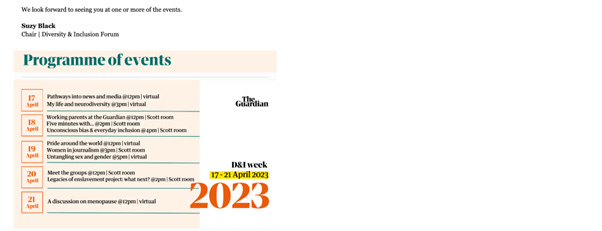
Still, here we are with The Guardian and I guess this means we can expect it to get much worse until, at the very least, there is a change in the leadership of the paper.

